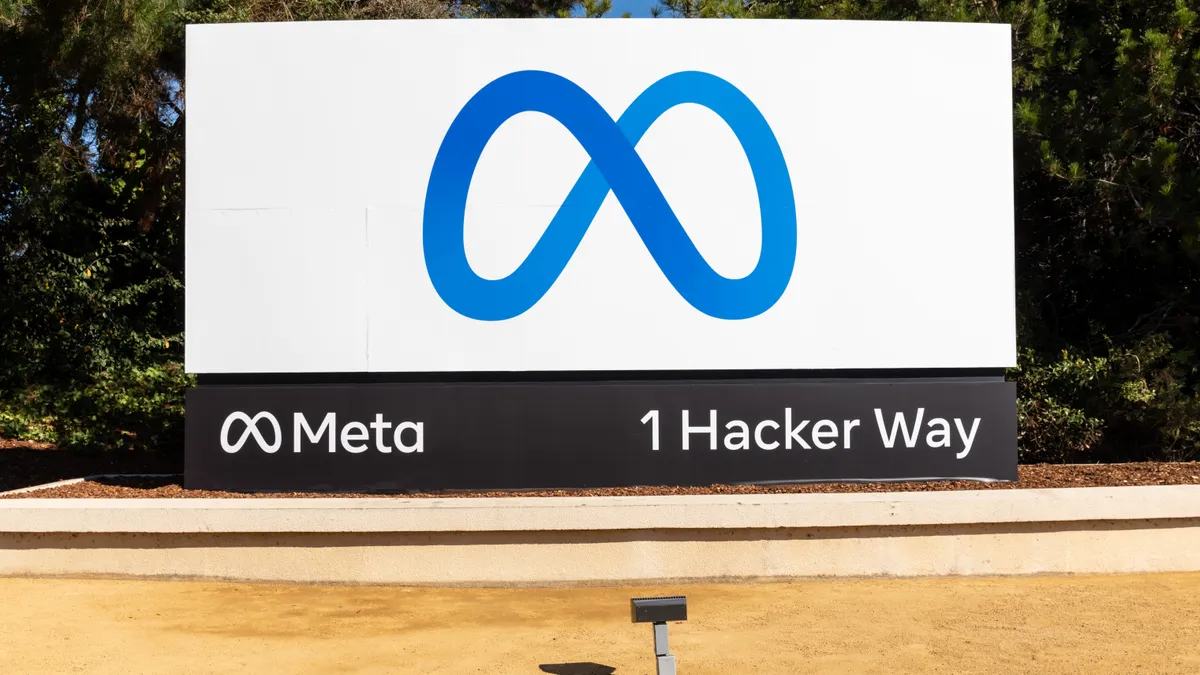Dive Brief:
- Meta’s VP, Finance Susan Li will move to the CFO position while current CFO David Wehner will become the company’s first Chief Strategy Officer effective Nov. 1, the firm announced in its second quarter earnings reported Wednesday.
- “Susan has played a key role on our finance team for 14 years — helping take our company public in 2012, overseeing the forecasting and budgeting of our business, and proving herself a talented and dedicated leader,” Meta CEO Mark Zuckerberg wrote of the move in a post on Facebook Wednesday. “We have been working on this succession plan for several years now and I am confident that Susan is ready to step into this role.”
- The CFO swap comes on the tail of disappointing earnings for the social media behemoth with Meta posting its first-ever yearly decline of revenue. Revenue dipped 1% to $28.8 billion, while net income fell 36% to $6.7 billion.
Dive Insight:
Wehner began his tenure at the company in 2012 as its VP of corporate finance and business, before taking on the CFO position in 2014. He previously served as CFO for computer game developer Zynga for two years from July 2010 to Nov. 2012 before moving to Meta.
Li joined Meta, then called Facebook, in 2008 and was promoted to her current position as VP, finance in 2016, overseeing corporate finance and treasury functions. She also currently serves as a board member for Alaska Airlines, joining its Board of Directors in 2018 where she is part of its Audit Committee and Innovation Committee. She worked as an analyst for Morgan Stanley for two years prior to joining Meta.

Upon taking on the CFO position, Li will oversee the finance and facilities teams currently supervised by Wehner.
The creation of the Chief Strategy Officer role and Li’s jump to the CFO role marks the second high-profile shift in Meta’s C-Suite in recent months, coming approximately one month after its Chief Operating Officer (COO) Sheryl Sandberg announced her intent to step down from her role in early June after 14 years at the firm. The company has indicated Javier Olivan will serve as COO following her departure, according to a filing with the Securities and Exchange Commission (SEC).
While its C-Suite re-solidifies, Meta is also taking several key steps to reallocate resources in the face of its declining revenue, including slowing the pace of its investments in several projects begun in 2021, CFO Mark Zuckerberg said on the earnings call.
Meta is also bracing to see slowdowns in its third quarter, expecting revenue between $26-28.5 billion due to the same weaker advertising demand the company saw in Q2, according to its earnings. The company will also be reducing headcount over the next year in a bid to cut down expenses and restructure resources.
“Many teams are going to shrink so we can shift energy to other areas, and I wanted to give our leaders the ability to decide within their teams where to double down, where to backfill attrition, and where to restructure teams while minimizing thrash to the long term initiatives,” Zuckerberg said.
Zuckerberg also pointed to several positive trends in Meta’s second quarter earnings report, including stronger engagement with products such as its Instagram Reels feature — a short-form video feature aimed at competing with similar apps such as TikTok — as well as the rising importance of technologies such as artificial intelligence (AI).
AI is becoming one of the key drivers of the business, he said during the earnings call, with approximately 15% of content glimpsed on users’ Facebook feed now recommended by the company’s AI from individuals, groups, or accounts users do not follow. These numbers are expected to double by the end of the year, Zuckerberg said.












